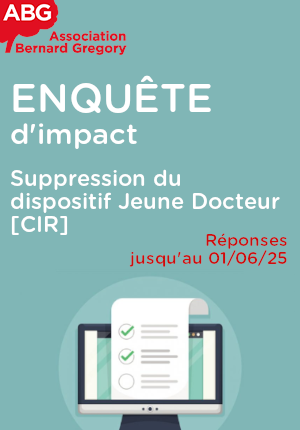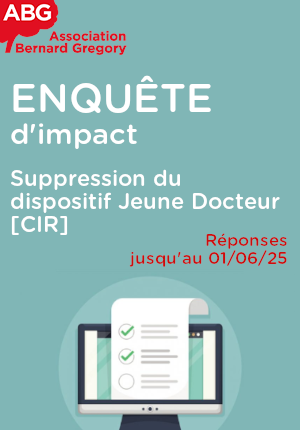Évolution de la connaissance dans la logique des points de vues // Knowledge Evolution in Standpoint Logic
|
ABG-132158
ADUM-66242 |
Thesis topic | |
| 2025-05-23 |
Université Grenoble Alpes
Saint-Martin-d'Hères - Auvergne-Rhône-Alpes - France
Évolution de la connaissance dans la logique des points de vues // Knowledge Evolution in Standpoint Logic
- Computer science
Logique des points de vue, Révision des croyances, Logique dynamique, Évolution de la connaissance
Standpoint logic, Belief change, Dynamic logic, Knowledge evolution
Standpoint logic, Belief change, Dynamic logic, Knowledge evolution
Topic description
Voir sujet en anglais.
------------------------------------------------------------------------------------------------------------------------------------------------------------------------
------------------------------------------------------------------------------------------------------------------------------------------------------------------------
The vast amount of structured data and knowledge available presents significant opportunities for collaboration, research and innovation across multiple sectors. A fundamental challenge is to support the integrated exploitation of these independent and ever-evolving sources of knowledge. For instance, AI agents corresponding to various institutions in the medical domain may need to exchange information for better decision-making in clinical research. This is challenging because their knowledge implicitly reflects their contexts and standpoints, often leading to conflicts when different sources are merged.
Standpoint logics support the representation of knowledge relative to diverse, possibly conflicting standpoints and have generated active recent research. Standpoint logics offer advantages. First, rather than a tailored framework, they are simple yet versatile multi-modal logics, which makes their syntax and semantics well-understood. This allows us to draw from well-established results and to bridge and share techniques with other domains. Second, they have been defined for first-order logic and we have studied decidable and efficient fragments, making the framework applicable to a broad range of languages present in the knowledge representation community. Finally, current results provide a promising landscape in terms of the complexity of automated inferencing and existing algorithms.
However, a fundamental limitation of standpoint logics in real distributed contexts is that it presumes that the knowledge from agents is static. In contrast, agents (or knowledge sources) are constantly evolving. Addressing this requires establishing dynamic standpoint networks of ontologies where knowledge change and adaptation are possible.
Within the mOeX team we have applied cultural knowledge evolution to ontology alignment repair, i.e. the improvement of incorrect alignments and ontology evolution, and we have shown that it converges towards successful communication through improving the intrinsic knowledge quality. This thesis addresses the problem of modelling cultural evolution within standpoint logic representations or defining cultural evolution protocols suitable for being expressed in standpoint logics. The focus is thus centred on studying the evolution of the knowledge of groups of agents whose knowledge encompasses a diversity of viewpoints.
The primary question to address is how the evolution of knowledge affects standpoint representations. For instance, when confronted with conflicting knowledge, agents may change their point of view or they may choose to preserve it and rather adjust how they interpret messages from other agents, i.e. modify the axioms linking their standpoints. This thesis will aim to generalise the standpoint logic framework to allow different forms of knowledge change and adaptation to be represented. Two interesting directions are studying belief revision in the context of standpoint logic, taking inspiration from work on the revision of networks of ontologies, and exploring extensions of standpoint logics in the spirit of dynamic epistemic logics, which have been used to model cultural knowledge evolution.
Beyond the characterisation of suitable notions of knowledge evolution within standpoint logics, this thesis will focus on defining computationally interesting fragments. Special attention will be paid to supporting interesting use cases. For instance, situations where a set of agents, each with a potentially different standpoint, must learn to communicate with each other from scratch by establishing a network of standpoints and their links via an iterated belief revision process.
By incorporating a dynamic aspect into standpoint logics, this work will contribute to their positioning as a reference formalism for representing and processing the dynamics of heterogeneous knowledge, as well as a natural framework to further explore the problem of cultural knowledge evolution.
------------------------------------------------------------------------------------------------------------------------------------------------------------------------
------------------------------------------------------------------------------------------------------------------------------------------------------------------------
Début de la thèse : 01/10/2025
------------------------------------------------------------------------------------------------------------------------------------------------------------------------
------------------------------------------------------------------------------------------------------------------------------------------------------------------------
The vast amount of structured data and knowledge available presents significant opportunities for collaboration, research and innovation across multiple sectors. A fundamental challenge is to support the integrated exploitation of these independent and ever-evolving sources of knowledge. For instance, AI agents corresponding to various institutions in the medical domain may need to exchange information for better decision-making in clinical research. This is challenging because their knowledge implicitly reflects their contexts and standpoints, often leading to conflicts when different sources are merged.
Standpoint logics support the representation of knowledge relative to diverse, possibly conflicting standpoints and have generated active recent research. Standpoint logics offer advantages. First, rather than a tailored framework, they are simple yet versatile multi-modal logics, which makes their syntax and semantics well-understood. This allows us to draw from well-established results and to bridge and share techniques with other domains. Second, they have been defined for first-order logic and we have studied decidable and efficient fragments, making the framework applicable to a broad range of languages present in the knowledge representation community. Finally, current results provide a promising landscape in terms of the complexity of automated inferencing and existing algorithms.
However, a fundamental limitation of standpoint logics in real distributed contexts is that it presumes that the knowledge from agents is static. In contrast, agents (or knowledge sources) are constantly evolving. Addressing this requires establishing dynamic standpoint networks of ontologies where knowledge change and adaptation are possible.
Within the mOeX team we have applied cultural knowledge evolution to ontology alignment repair, i.e. the improvement of incorrect alignments and ontology evolution, and we have shown that it converges towards successful communication through improving the intrinsic knowledge quality. This thesis addresses the problem of modelling cultural evolution within standpoint logic representations or defining cultural evolution protocols suitable for being expressed in standpoint logics. The focus is thus centred on studying the evolution of the knowledge of groups of agents whose knowledge encompasses a diversity of viewpoints.
The primary question to address is how the evolution of knowledge affects standpoint representations. For instance, when confronted with conflicting knowledge, agents may change their point of view or they may choose to preserve it and rather adjust how they interpret messages from other agents, i.e. modify the axioms linking their standpoints. This thesis will aim to generalise the standpoint logic framework to allow different forms of knowledge change and adaptation to be represented. Two interesting directions are studying belief revision in the context of standpoint logic, taking inspiration from work on the revision of networks of ontologies, and exploring extensions of standpoint logics in the spirit of dynamic epistemic logics, which have been used to model cultural knowledge evolution.
Beyond the characterisation of suitable notions of knowledge evolution within standpoint logics, this thesis will focus on defining computationally interesting fragments. Special attention will be paid to supporting interesting use cases. For instance, situations where a set of agents, each with a potentially different standpoint, must learn to communicate with each other from scratch by establishing a network of standpoints and their links via an iterated belief revision process.
By incorporating a dynamic aspect into standpoint logics, this work will contribute to their positioning as a reference formalism for representing and processing the dynamics of heterogeneous knowledge, as well as a natural framework to further explore the problem of cultural knowledge evolution.
------------------------------------------------------------------------------------------------------------------------------------------------------------------------
------------------------------------------------------------------------------------------------------------------------------------------------------------------------
Début de la thèse : 01/10/2025
Funding category
Funding further details
Concours allocations
Presentation of host institution and host laboratory
Université Grenoble Alpes
Institution awarding doctoral degree
Université Grenoble Alpes
Graduate school
217 MSTII - Mathématiques, Sciences et technologies de l'information, Informatique
Candidate's profile
* Curiosité et ouverture
* Interaction avec les autres chercheurs
* Autonomy
* Bonnes connaissances logiques
* Connaissance de la révision des croyaces ou des logiques dynamiques épistémiques sera un plus
* Innovante
* Curiosity and openness. * Interaction with other researchers. * Autonomous researcher. * Solid logic background. * Knowledge of dynamic epistemic logics and/or belief revision would be a plus. * Innovative.
* Curiosity and openness. * Interaction with other researchers. * Autonomous researcher. * Solid logic background. * Knowledge of dynamic epistemic logics and/or belief revision would be a plus. * Innovative.
2025-06-09
Apply
Close
Vous avez déjà un compte ?
Nouvel utilisateur ?
More information about ABG?
Get ABG’s monthly newsletters including news, job offers, grants & fellowships and a selection of relevant events…
Discover our members
 CASDEN
CASDEN  ONERA - The French Aerospace Lab
ONERA - The French Aerospace Lab  ADEME
ADEME  Nokia Bell Labs France
Nokia Bell Labs France  MabDesign
MabDesign  MabDesign
MabDesign  Ifremer
Ifremer  Institut Sup'biotech de Paris
Institut Sup'biotech de Paris  TotalEnergies
TotalEnergies  ASNR - Autorité de sûreté nucléaire et de radioprotection - Siège
ASNR - Autorité de sûreté nucléaire et de radioprotection - Siège  ANRT
ANRT  Tecknowmetrix
Tecknowmetrix  Aérocentre, Pôle d'excellence régional
Aérocentre, Pôle d'excellence régional  SUEZ
SUEZ  Laboratoire National de Métrologie et d'Essais - LNE
Laboratoire National de Métrologie et d'Essais - LNE  Groupe AFNOR - Association française de normalisation
Groupe AFNOR - Association française de normalisation  CESI
CESI  PhDOOC
PhDOOC  Généthon
Généthon







